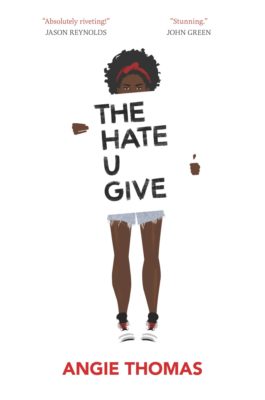Book 9: The Hate U Give
Schedule TBA

For Discussion:
- In the first chapter, Khalil and Starr listen to Tupac in the car. Khalil explains what Tupac said “Thug Life” meant. Discuss what this acronym means and how it shows up throughout the book. How else does the author use hip-hop as a motif?
Throughout the book, Starr talks about how she’s different “versions” of herself. She’s one person in Garden Heights and a different person at her school, Williamson Prep. This is often called “code-switching” when a person feels they must speak and act different in one social situation than in another. Do you think Starr switches successfully between the two places? What other characters do you see code switching? Are there any instances when someone doesn’t switch and makes things socially awkward? Is this something you can relate to?
Starr’s family situation is somewhat complicated. She lives with her parents. She has two brothers, one older who shares the same father, one younger who has the same mother and father. Her brother’s sister is in her life, along with a detective uncle who doesn’t live in Garden Heights. How does Starr define family? Compare this to how you define family in your own life.
Starr suggests that Williamson Prep hold a round table discussion about Khalil’s death, but Dr. Davis, the principal, doesn’t feel it’s necessary. Why do you think Dr. Davis feels this way? What would you do if you were the principal at Williamson?
Throughout the novel, Starr refers to police officer Brian Cruise as One-Fifteen, which is his badge number. Why do you think she does this? Does her attitude toward police officers change over the course of the book? How does her uncle play into this change?
Maverick’s rose garden can be seen as a symbol in this book. What do you think it represents? Read Tupac Shakur’s poem “The Rose that Grew from Concrete” and discuss what this has to do with “Thug Life.”
After Khalil dies, parts of his life are shared in conversations, news media, and social media. How do the messages differ from each medium? Was one more reliable? Who got his story wrong? What might have been a more reliable source for information on Khalil?
Starr and Chris’s relationship changes throughout the novel. When does Starr doubt her relationship with Chris? Does the fact that they are in an interracial relationship complicate or strengthen their bond? What do you think will happen with their romantic relationship after the end of the story?
What incidents cause a disagreement between Starr and Hailey? Starr says to Hailey, “You can say something racist and not be racist.” What do you think this means? Do you agree or disagree? Why?
Once the jury decision about Khalil is made public, unrest in Garden Heights begins. “Sirens wail outside. The news shows three patrol cars that have been set ablaze at the police precinct…A gas station near the freeway gets looted…My neighborhood is a war zone” (Chapter 9, pp. 136–139). There’s a long history of this happening, from the Watts protests in the 1960s to the protest after the Rodney King verdict in 1992 to protests after the death of Mike Brown in 2015 in Ferguson, starting the “Black Lives Matter” campaign. Why does the neighborhood react this way? What is Starr’s reaction?
What happens when some Williamson Prep students decide to protest Khalil’s death? How is this different from the neighborhood protests? What is Starr’s reaction?
What is the “trap of the white standard” that Starr’s brother Seven mentions? Have you seen examples of this in real life? Explain.
Throughout the book Starr references The Fresh Prince of Bel-Air and Harry Potter as art she can relate to. Why do you think this is? What are other characters thoughts on these series?
In chapter 9, Starr’s mom is telling her a story and says, “Sometimes you can do everything right and things will still go wrong. The key is to never stop doing right” (p. 154). Do you agree or disagree with this statement? Why or why not?
Starr vows to “never be quiet” (Chapter 26, p. 444) and that her commitment is beyond Khalil. Angie Thomas says, “I look at books as being a form of activism because a lot of times they’ll show us a part of the world we may not have known about.” Has this book changed or reaffirmed your views on the world? How so? How can you take steps to use your voice to promote social justice?


